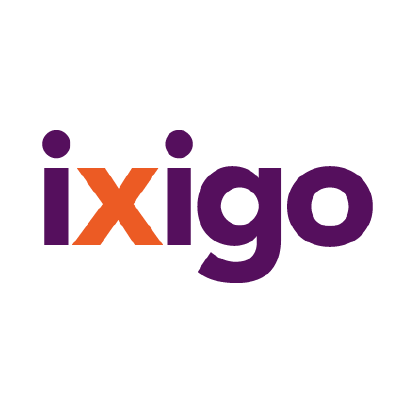Why Should You Invest in a Home Inspection Service?

Introduction to Home Inspections
A home inspection is a detailed examination of the condition of a home, performed by a qualified home inspector. During a home inspection, the inspector visually examines the property and identifies any issues or defects with the home’s systems, structure, or components.
Some key things a home inspector checks include:
Electrical Systems
- Condition of electrical panel, wiring, outlets, switches, etc.
- Functionality of lighting fixtures
- Grounding and polarization
- Load calculations
Plumbing Systems
- Condition of water and drain lines
- Water pressure
- Function of fixtures like toilets, faucets, showerheads
- Water heater status
- Checking for leaks
HVAC Systems
- Cooling and heating equipment age and capacity
- Ductwork and vents
- Airflow levels
- Thermostats
- Humidifiers
Roofing
- Roof age, material and condition
- Flashing details
- Gutters and drainage
Structure
- Foundation condition
- Walls and ceilings
- Attics and insulation
- Doors and windows
And More
- Pest/termite infestation
- Pool/hot tub motor and equipment
- Built-in appliances
- Radon gas levels
- Asbestos and lead materials
The inspector then generates a detailed report summarizing the condition of the home. They will identify any repairs needed or issues to monitor in the future.
Why Get a Home Inspection?
When you purchase a home, a Home Inspection Jacksonville is strongly recommended. Getting an inspection is important for several reasons:
1. Protect Your Investment
Your home is likely your biggest investment. Ensuring it is structurally sound and free of major defects helps protect the value of that investment. An inspection identifies issues to address to properly maintain your asset.
2. Learn About the Home’s Systems and Components
An inspection educates you on the unique elements of the property, like the roof age and type, underground plumbing materials used, electrical panel amperage, and more. Knowing these details assists future decisions.
3. Make Informed Decisions
The inspection report provides objective information to help evaluate if this home meets your needs and standards. Inspections give facts to back out of a contract or negotiate needed repairs.
4. Prevent Surprises After Moving In
It’s inevitable that some flaws or needed repairs will get missed. But a thorough home inspection provides assurance that you have identified the major red flags upfront before closing. This allows budgeting for repairs.
5. Identify Safety Issues
Inspections determine issues impacting safety, like exposed wiring, lack of GFCI outlets around water, poor step railings, roof leaks, radon gas levels, and more. Identifying these right away reduces danger to your family.
6. Qualify for Home Insurance Discounts
Some insurance companies offer a “new home” or “inspected home” discount on policies if you get a home inspection before purchasing. The discount incentivizes protecting your investment.
What Does a Home Inspection Cost?
Lakeland Home Inspection Service ranges in cost, but the national average is around $300-$500. Factors impacting the cost can include:
Size of the Home
Larger, multi-story homes take more time, equipment, and effort to thoroughly inspect. Expect a higher fee for properties over 3,000 square feet.
Home Age
Newer homes or newly renovated homes tend to cost less than older homes requiring extensive inspection of aging systems. Roof age also contributes to cost.
Scope of Services
Basic visual inspections cost less than testing services like checking for mold, radon gas levels, lead paint, or termite infestations. But opting for more testing provides greater insight.
Location
Inspection rates can vary by region and market conditions. Expect moderately higher rates in very rural or very metro areas.
Questions to Ask a Home Inspector
Choosing the right home inspector for your needs is critical to getting maximum value from the inspection. Key questions to ask prospective inspectors include:
1. What Does Your Inspection Cover?
This helps determine if their standard process aligns with the level of detail you expect. Also clarify what requires additional testing.
2. What Type of Report Do You Provide?
Ask for sample reports to understand the thoroughness, formatting, photos provided, and overall quality you can expect. Digital access to reports is essential.
3. What Certifications Do You Have?
Several organizations like ASHI and InterNACHI require certification demonstrating inspector qualifications and expertise through testing and continuing education.
4. How Long Have You Been Inspecting in This Area?
Local experience helps an inspector be more familiar with regional codes, common issues, and area norms. This provides helpful context for identifying outliers.
5. Do You Offer Any Guarantees?
Many inspectors guarantee their inspection for up to 90 days, giving assurance on their thoroughness and accountability for any issues missed.
Signs It’s Time to Invest in a Home Inspection
Even after living in your home for years, certain scenarios indicate investing in an updated home inspection. Times to consider an inspection include:
Noticing Possible Foundation Issues
Signs could include new cracks in walls or ceilings, sticking doors or windows, or uneven floors. An inspection determines any structural concerns needing repair.
Planning Major Renovations
If undertaking a large remodel or addition, an inspection helps advise on any upgrades to related systems needed beforehand, like electrical panel capacity, plumbing line flow rate, HVAC sizing, etc.
Observing Problems After Heavy Storms
Storms can reveal or exacerbate issues like roof leaks, drainage problems, siding and window seals failing, flooding, and more that prompt an inspection of storm-related damage.
Preparing to Sell Your Home
An updated inspection report helps optimize selling price by identifying needs a buyer may require you address or price accordingly. It also builds trust by showing prospective buyers the home’s condition.
Noticing Age-Related Issues
As systems and components reach aging milestones, increased breakdowns may occur. If the water heater, A/C unit, appliances, or roof are nearing expected lifespans, an inspection assists replacement decisions.
Seeing Higher Utility Bills
Unusually high energy and water bills could indicate failing insulation, HVAC inefficiencies, leaky plumbing, etc. An inspection helps pinpoint causes of wasted resources.
Selecting the Right Home Inspector
Choosing the best inspector involves:
Checking Certifications
Confirm proper ASHI, InterNACHI, or state licensing credentials assuring quality standards.
Requesting References
Speaking with past clients offers insight on an inspector’s thoroughness, reporting, and responsiveness.
Reviewing Sample Reports
Ensure reports have needed detail, photos, formatting and clarity to maximize usefulness.
Understanding Experience
More years inspecting helps an inspector identify less common issues. Familiarity with regional norms and codes also provides valuable perspective.
Confirming Guarantees
A guarantee demonstrates the inspector stands behind their work and will return to re-inspect any issues missed initially.
Conclusion
Investing $300-$500 in a thorough home inspection is minimal compared to the value it provides toward protecting your largest investment. Inspections identify existing or potential issues needing repair to prevent costly problems later. Reports educate on the unique elements of the property to guide future maintenance. Knowing the property’s objective condition also assists decision making around purchasing, budgeting, renovating and selling. Selecting the right certified, experienced inspector provides maximum return on investment toward safeguarding your home.











